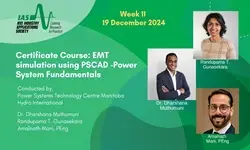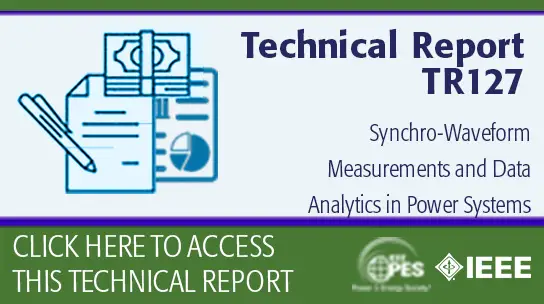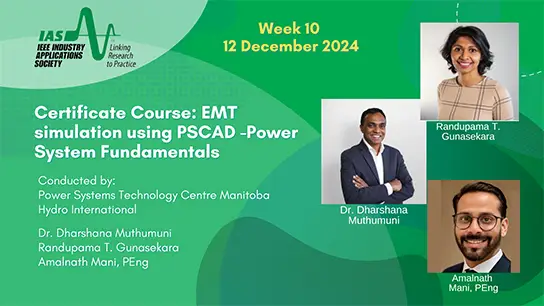A Comparison of Inverter Control Modes for Maintaining Voltage Stability During System Contingencies
Thilini Hathiyaldeniye, Udaya D. Annakkage, Nalin Pahalawaththa, and Chandana Karawita
-
Members: FreePES
IEEE Members: Free
Non-members: FreePages/Slides: 11
06 Jan 2022
Inverter-based power sources are increasingly being connected to the power system due to the global drive towards renewable generation. This paper investigates the voltage stability of a power system where a load center is supplied by the grid through a transmission system along with an inverter-based generation located close to the load center. It is also assumed that there is no additional reactive power compensation at the load center and voltage control at Point of Common Coupling (PCC) is done by the inverter. This is challenging as the inverter has an added duty. If the inverter controllers are not designed properly, the inverter could reach its current limit following to contingencies rendering it unable to support the voltage at the PCC. This is due to the fact that once the current limit is reached, the inverter ceases to function as a voltage source. When the voltage at the PCC is not supported, the active power transfer capability of both the inverter and the grid will be reduced. An effective control method is required under such circumstances to handle the active and reactive components of the inverter current. Various strategies exist for controlling the active and reactive components of the inverter current while preserving the current magnitude at the rated value. The necessity of an adequate control strategy to sustain long-term voltage stability following a system contingency is emphasized in this research. This paper further discusses three candidate control strategies and the effectiveness of the reactive current prioritizing approach as a solution for operation upon system contingencies.


